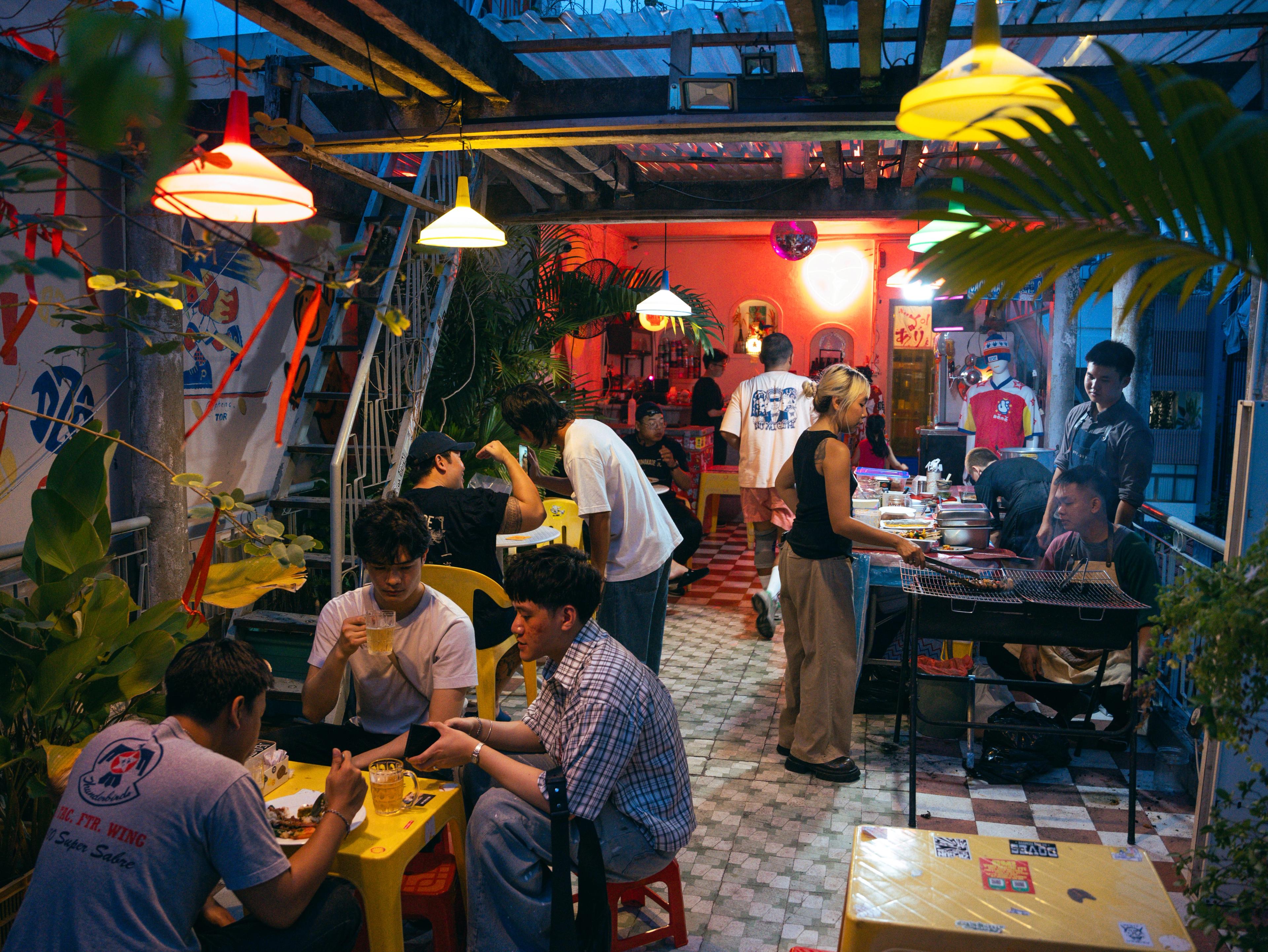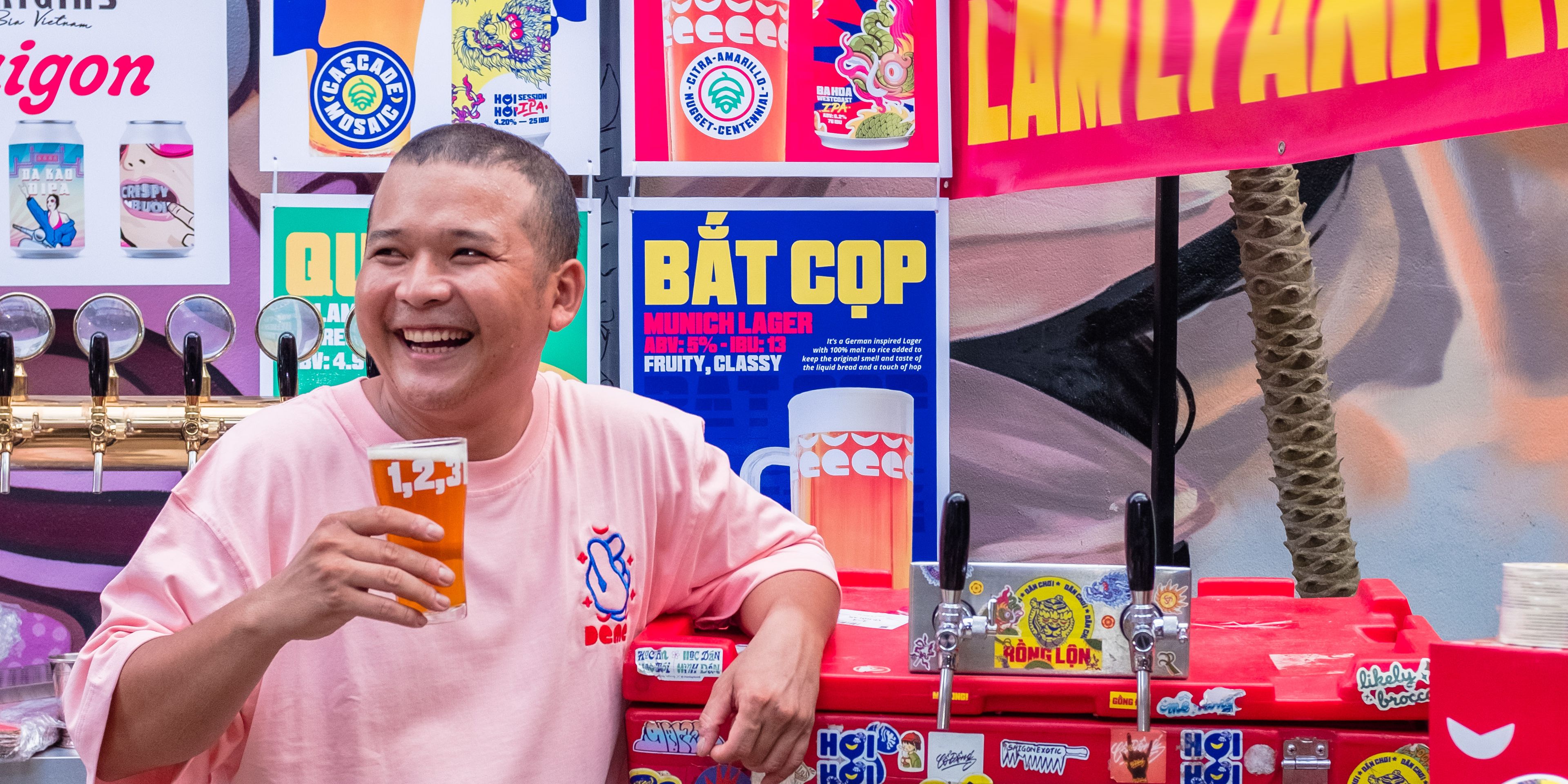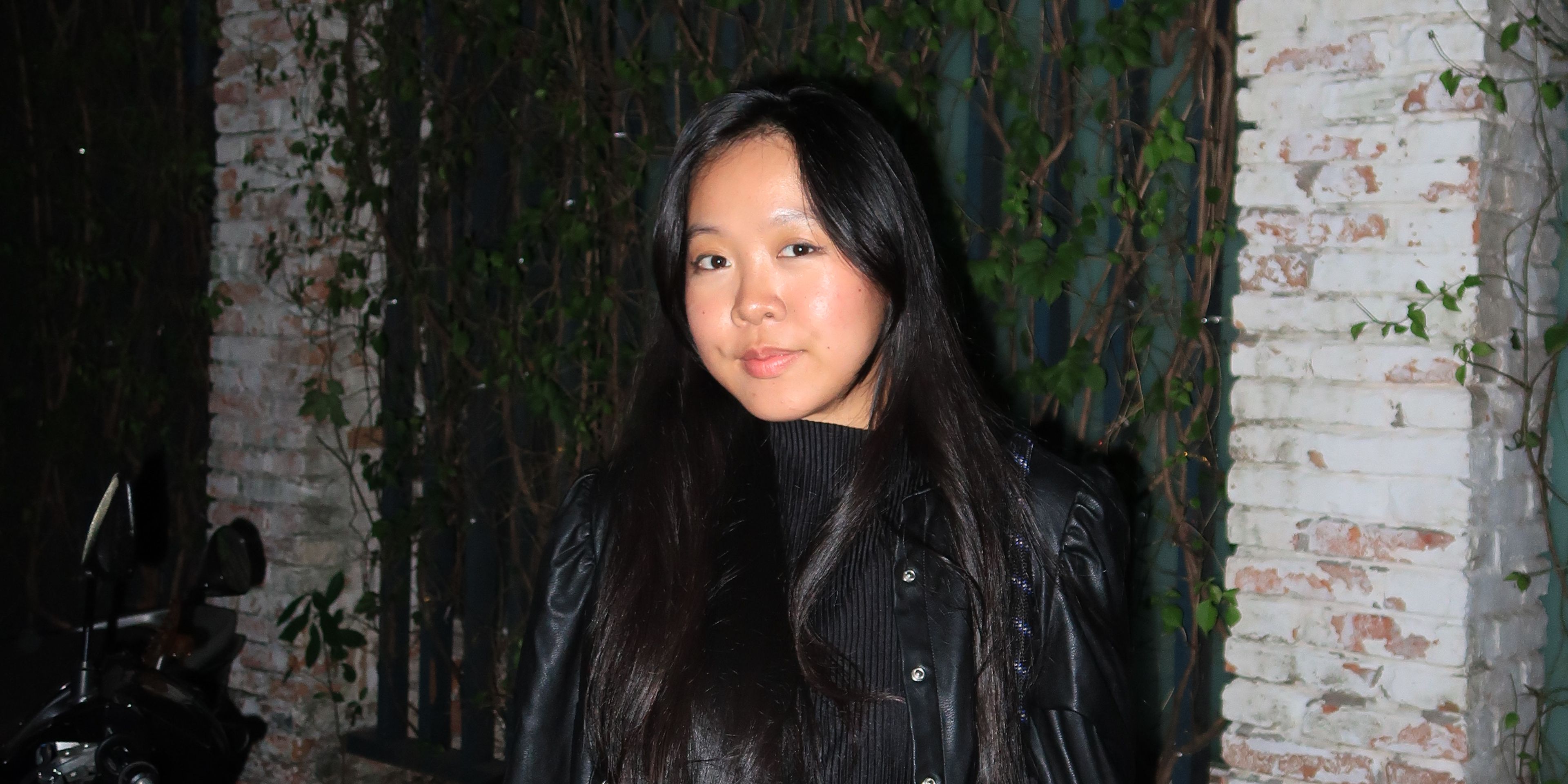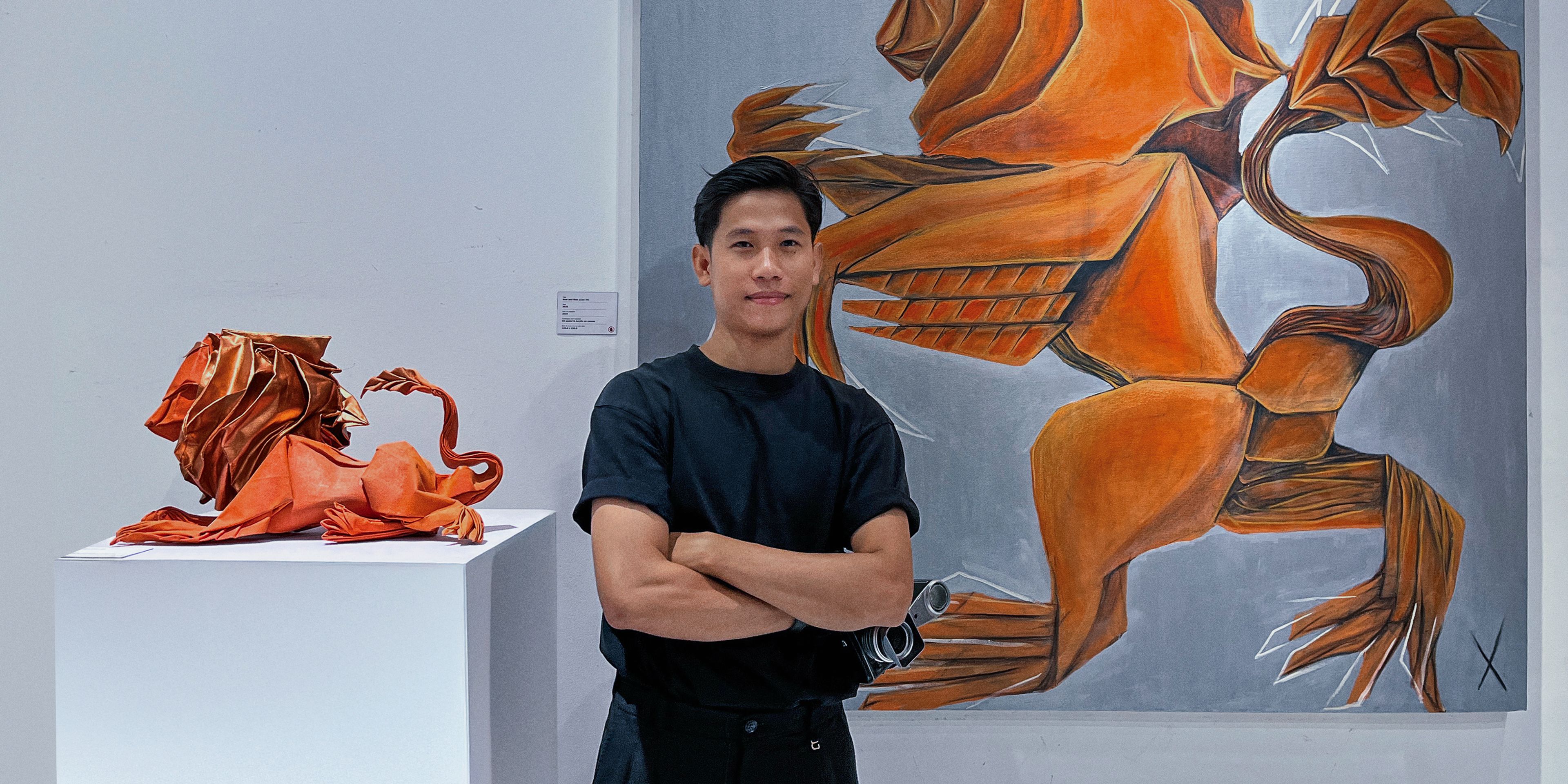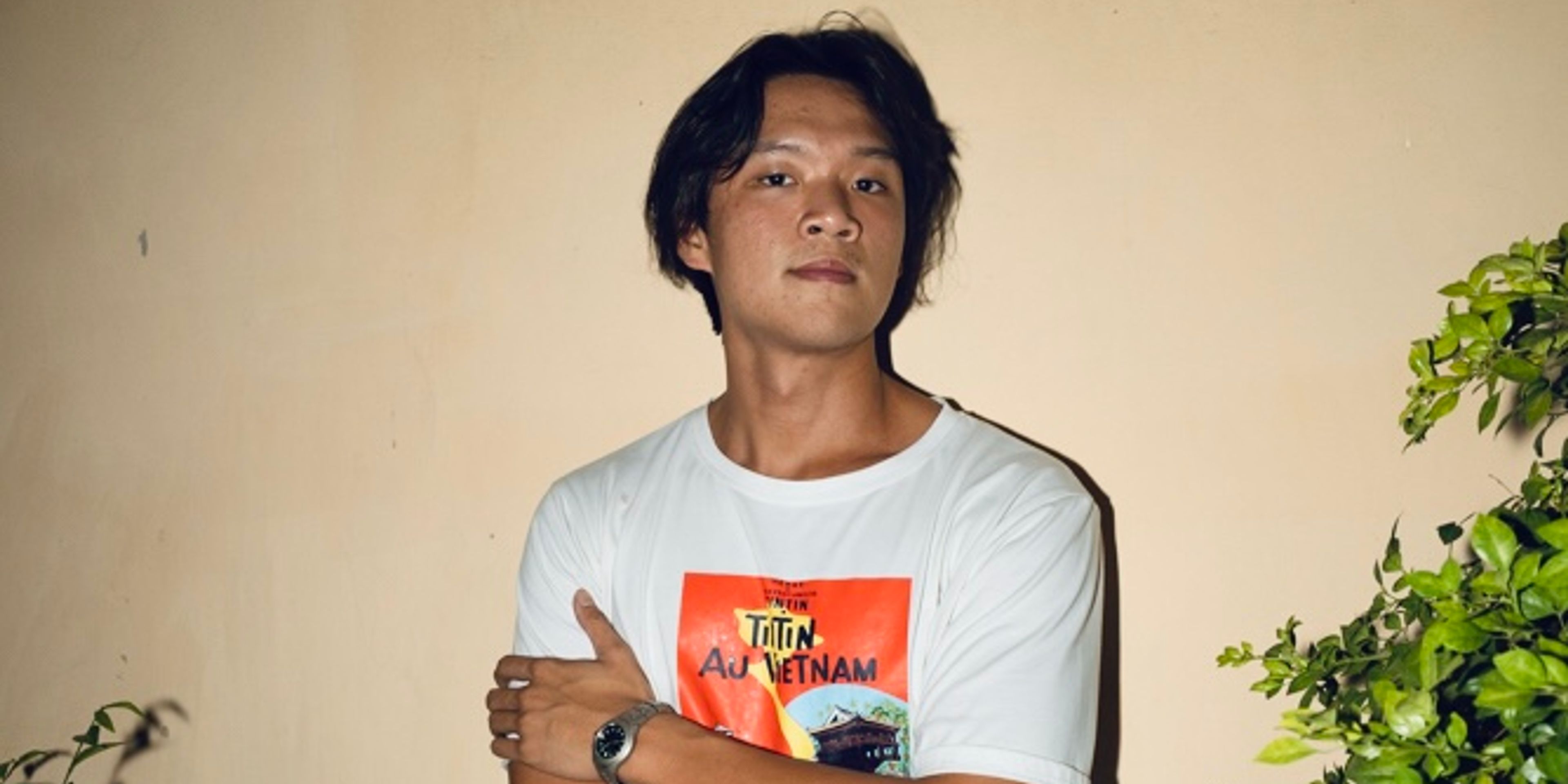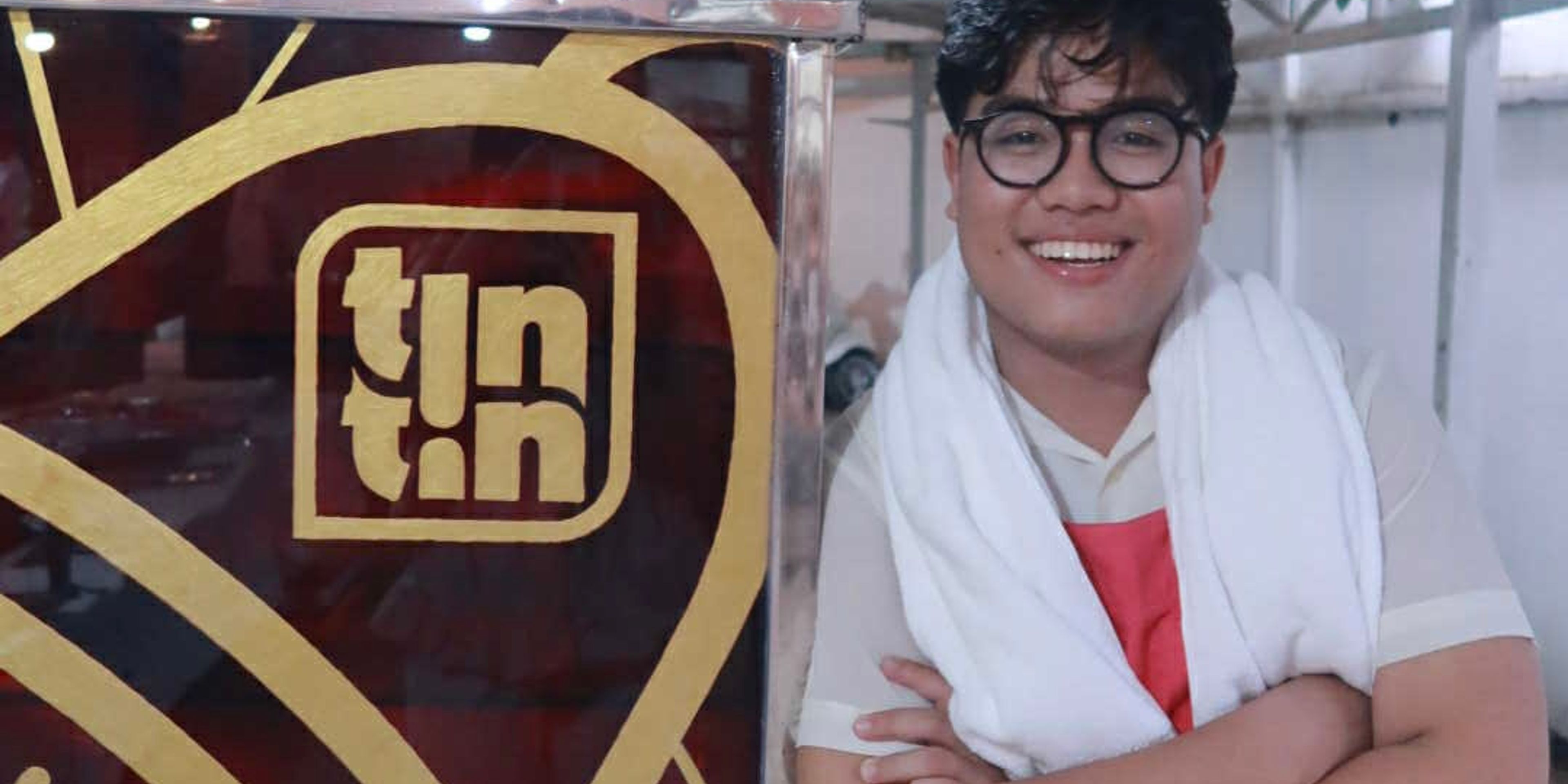Tung, the owner of Neo- and Deme Brewing, is one of those guys that’s impossible not to like being around. It’s fitting then that his nickname is Cheekie, because whenever you talk to him he’s got this cheeky, childlike grin on his face, as if he’s just thought of a joke he can’t wait to share. It was with a similar smile he told me about one of his new inventions when we met: a beer holder necklace featuring a silicone end that you can wrap around any pint-sized glass. He gave me one, said, You don’t want to lose any of your beers, do you? And then went into a full-blown cackle, laughing so openly I couldn’t help but laugh with him. We were sitting on the second floor of Neo-, an area that serves as a cafe and event space, an area that, in my eyes, is one of the coolest looking spots in the city. It takes a guy with a certain amount of style, taste, and a general I-like-what-I-like attitude to come up with something like Neo-. The rooftop is one of my favourites in Saigon, somewhere you can enjoy an ice-cold craft beer with a friend, chat away the hours while the sun sets on another maddeningly hot day. The sky turns pink, purple, a colour you don’t even know how to describe, and all seems alright for a while. So how did he do it? How did someone who on the outside seems so carefree and casual create something that’s become a gathering ground for expats and locals alike? As always, you’ve got to go back.
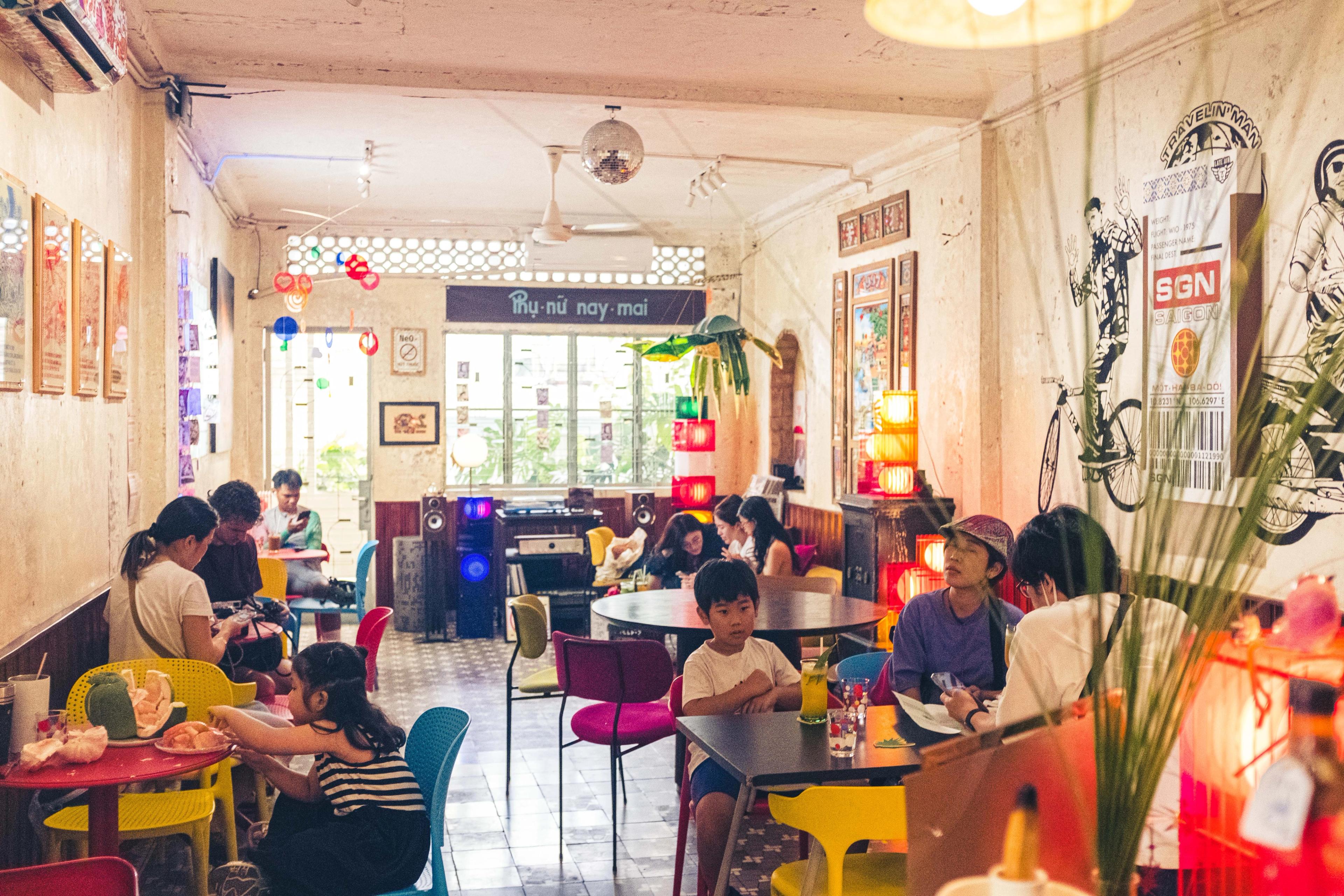
Tung was born and raised in Saigon. He grew up in Nancy Market in District 5, in an area that bordered Chợ Lớn. His parents used to run a small entertainment business from their house, complete with pool tables, karaoke boxes, and video games. Besides this, Tung’s aunt had a store in the market, so looking back, he’s not that surprised he ended up in the business he’s in now: he’s always been meeting, talking to, and connecting with people—It’s been a part of him since he was a kid. Besides developing his people skills, growing up in a market had a couple other effects on Tung. For one, given that his home bordered Chợ Lớn, it put him in a position where he was constantly meeting people of a different background and culture. During our conversation he spoke of a very real feeling of the world being a place where he was smack in the middle of numerous people and cultures. This meant he grew up hanging out with both Vietnamese and Chinese kids, which, in turn, gave him a friendliness and curiosity you’ll recognise if you ever meet him in person. Besides that, growing up in Nancy Market had another effect. The area used to be one of the largest wholesale drug markets in the city, and as a thirteen year old he recognised that kind of lifestyle in a movie he watched back then: 8-Mile, starring Eminem. Gangsters, dealers, and addicts were never far away and it was for this reason Tung’s parents, worried for his future and safety, decided to get him to move out.
Leaving home is a formative experience at any age, but doing so when you’ve only turned a teenager can make the move that much more daunting. Of course, it wasn’t like Tung stopped seeing his family. Basically, what he had was his own room in a different house, so he’d sleep there but was still free to come and go to where his family lived. While this isn’t a complete you’re-on-your-own-and-no-one’s-got-your-back type of situation, it still forces you to figure out how to stand on your own feet. Somewhat unsurprisingly, Tung reveals how much he enjoyed the time, given that he could invite his friends round to his ‘spot’ to hangout, and he was free to go skating and graffiting whenever he wanted. At the same time, he understood how strange a situation it was. It made him comfortable being alone and gave him the fierce independence that defines who he is and what he does today.
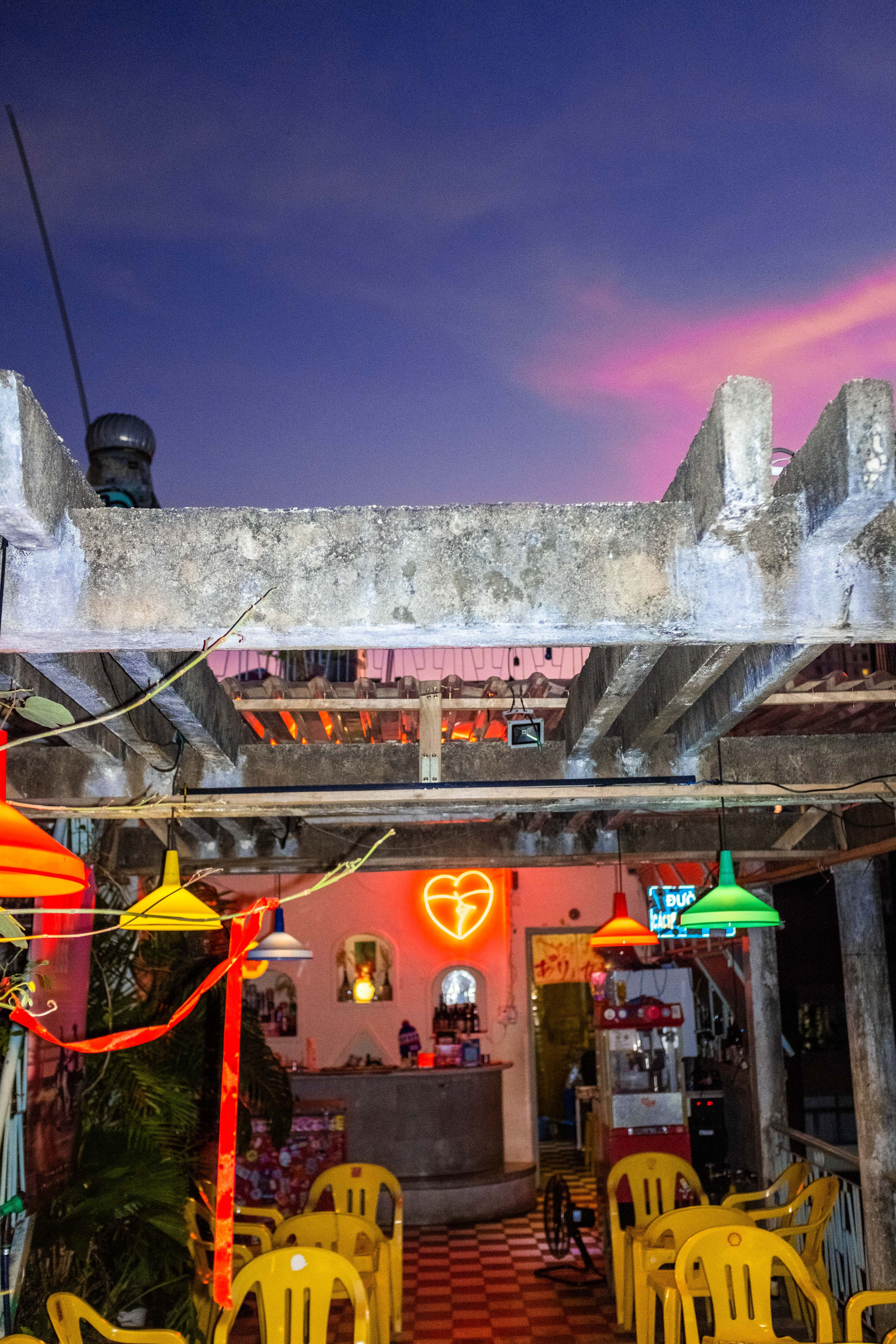
At the age of seventeen, Tung finished school. He made a choice then that might’ve seemed insignificant at the time but ultimately, rippled throughout his future and benefited him in more ways than one. He got a job at KFC. Now it’s easy enough to laugh and point fingers at someone working in a fast-food joint, given the ideas many people have of that type of work, but the reality is, there are transferable skills you can learn even at KFC, McDonalds, whatever fast food joint, that you can take with you into your next phase of life. This was the case with Tung, who speaks of figuring out how to better understand the customer’s experience through the role. Working at the KFC branch at the back of the Opera House meant that he had to brush up on his English. He did so through work and on evenings out at Bùi Viện, speaking to people from all sorts of places, soaking everything up as every teenager, to some extent, should do. While he never regretted working at KFC—going so far as to becoming their youngest store manager at their Thảo Điền branch—he knew it wasn’t what he wanted to do forever. Owing to a lifetime spent graffiting and an interest in art, he started learning about graphic design when he was twenty. His best friend and the guy he started Deme with was already working at a graphic design agency called Rebranded so on the weekends he’d tag along and hang around the office, learning more through exposure than anything. It paid off. Eventually Rebranded offered him an internship and that was that. Tung was off and running.
His work at Rebranded ranged from graphic design to photography, but more than that, it was a period of getting out there and cutting his teeth. Leveraging his Vietnamese and English skills, he went out and met numerous clients and collaborators, gaining a global perspective of what could be done in these industries. Again with that cheeky grin, he recalls when Rebranded’s owner started a lifestyle toothbrush company called Yumaki. As part of the job, Tung had to figure out how to make toothbrush holders out of stone. Visiting a variety of laser cutters around Saigon and asking for certain specifications, he remembers how everyone looked at him as if he were crazy—What’s anyone going to do with a toothbrush holder made out of stone? While it might’ve seemed ridiculous from the outside looking in, this kind of work stimulated him both creatively and professionally, making him realise that really, so long as you had an idea, anything was possible. Every single one of these experiences would pay dividends when his boss at Rebranded and Yumaki left the country and Tung had to figure out what to do for himself. He’d already started a clothing brand called LATer, which he worked on while he was at Rebranded. Upon leaving, he started a printing service which involved a lot of drawing as well as printing pieces created by other designers. After a brief stint in this world, he became increasingly curious about fashion design and branding so he left it for a job at Kaarem, an offshoot of Que Kaarem. He stayed there for three years, pretty much doing everything. He sewed fabrics, cut them, made deliveries, picked deliveries up, did quality control, dabbled in accounting, once more leaning into a philosophy that I’ve noticed Tung seems to live his life by: that of trying everything out and doing it all with a smile, whether it be working at KFC, in graphic design, or in fashion design. The most important thing is to give things a shot.
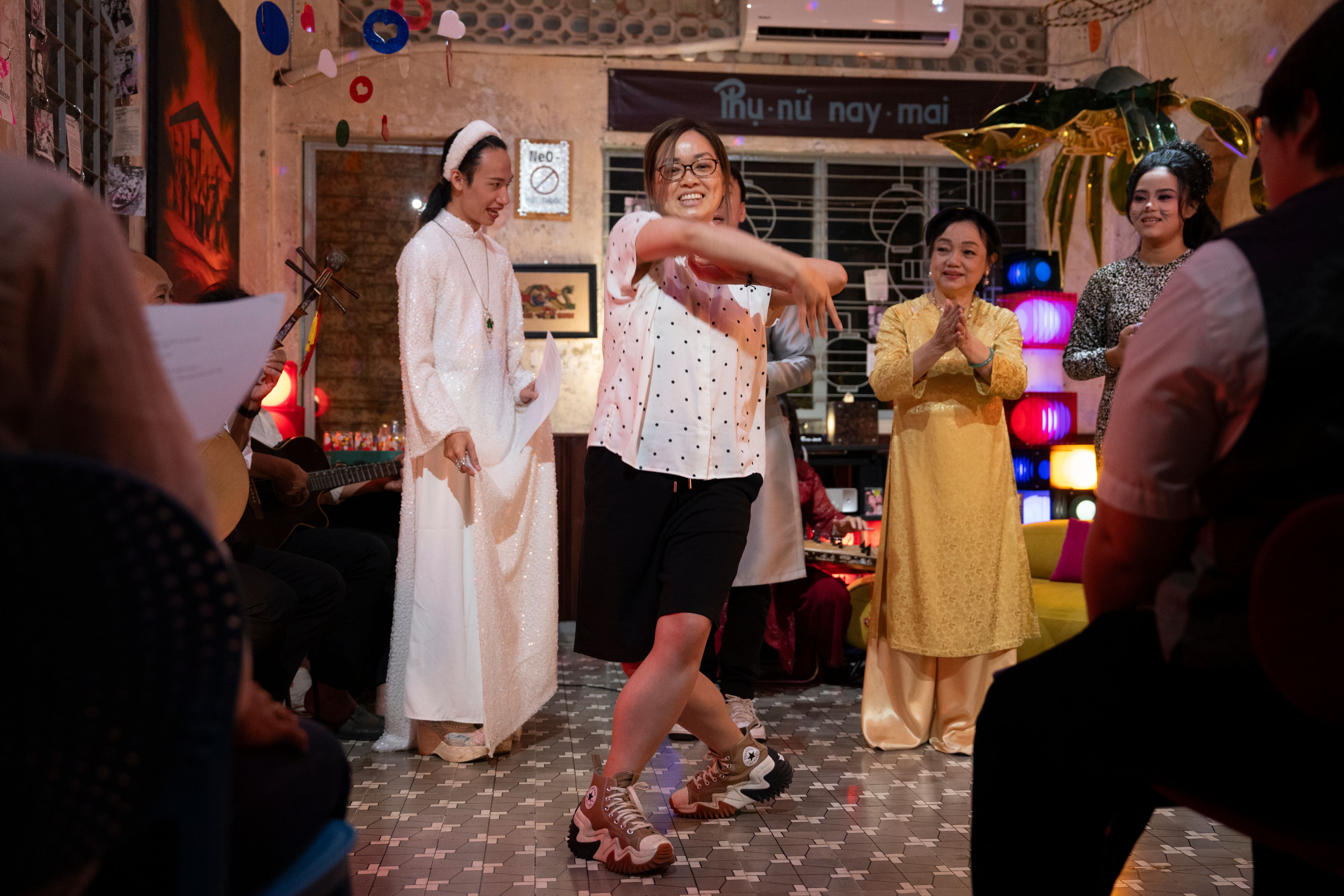
At the age of twenty-five, Tung left Saigon for Dalat. At that point he was dating Thuỷ, his now wife, and even though he’d gained a wealth of experience in multiple fields, he was still unsure what to do next. He spent a lot of this period figuring things out, travelling the country he called home but knew little of. He always liked to drink, and had a group of friends and other graphic designers with whom he’d always have a few beers. It was with them the idea of Deme Brewing took root. Đê Mê refers to having fun doing what you love, and it’s with this ethos they started as a pop-up brand making craft beer using ingredients from Vietnam. Tung focused on selling and marketing the product while his partner at the time took care of the actual brewing. With the start of Deme, Tung now had a business he could call his own, something he could build out with his own distinct style and taste. But in order to really take it to the next level he had to return to Saigon.
Originally, Deme started selling their craft beers from a hole in the wall in District 5. They were only open on Fridays, Saturdays, and Sundays, and operated in a similar fashion to how Neo- does today by hosting a variety of events, art viewings, and other pop ups. They did okay, thanks in large part to the fact that they distributed to numerous restaurants around Saigon, but as a location itself the building was too small and far from the city center to attract a crowd. It was a slow start, and it was only going to get slower. After Covid hit, everything was put on pause. It was a tough time, one that not only impacted the business itself but resulted in a falling out with his business partner. Once Covid settled, Tung was out on his own and needed a spot from where he could try something new. Luckily, he knew just the place to go.
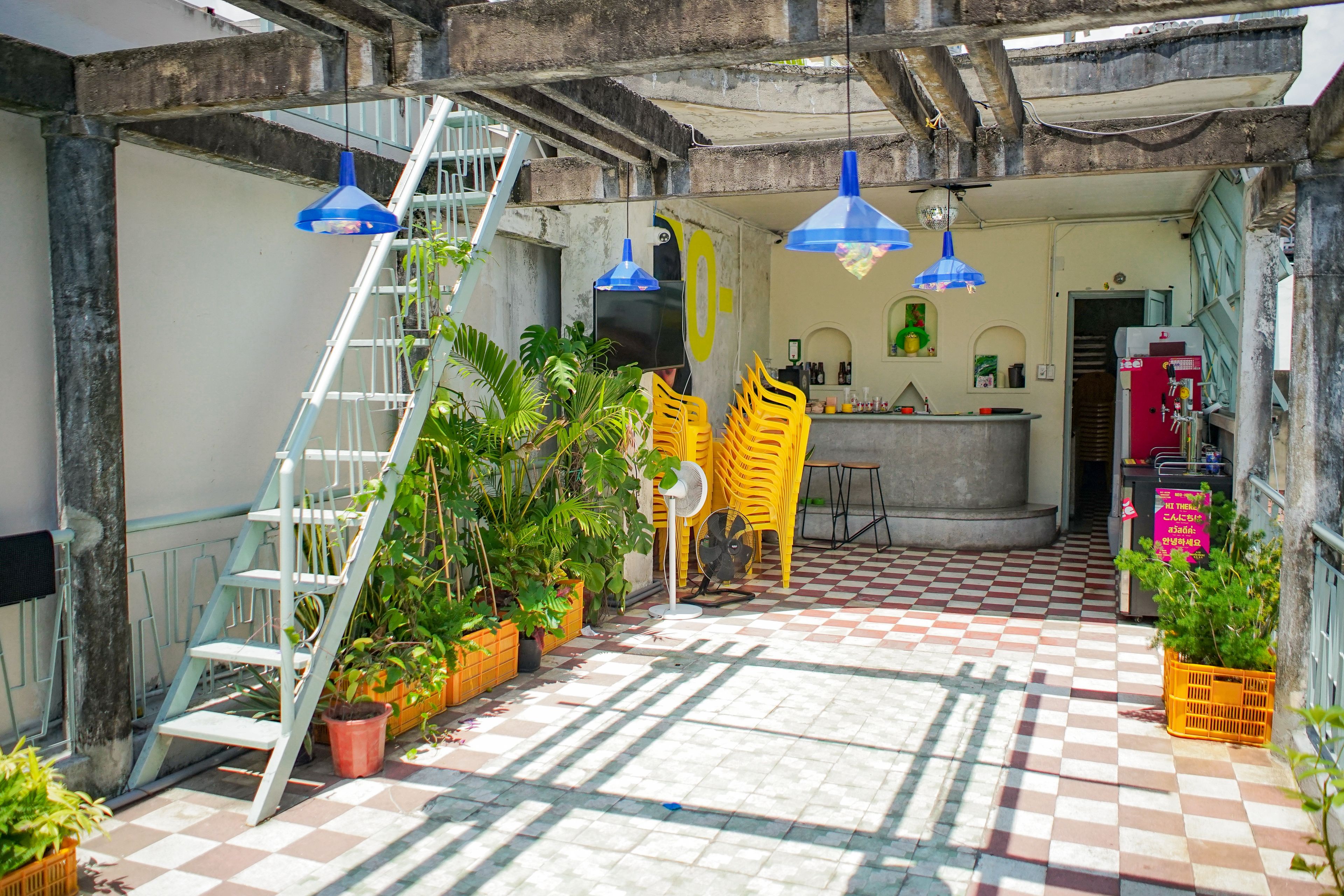
Even before Tung left for Dalat, he’d had his eye on a building in District 3, right near the famous Pink Church. It was abandoned the first time he’d seen it, but something about it had him coming back every now and again for a look. When he’d returned to Saigon, he went around and found it housed a sewing workshop on the first floor, while the second floor and rooftop remained untouched. He went for a viewing and the moment he stepped foot out onto the rooftop he knew there was no going back. In 2022, Neo- opened its doors.
Much of the concept behind Neo- is rooted in its name. That’s why even though the bar is simultaneously a cafe, bar, event space, and workshop space, more so than any of that, Neo- is an ideology. It starts with the dash which follows the name Neo. The dash is there on purpose because it means something has to come afterwards. Essentially, Neo- shouldn’t stand alone. This is why Tung likes putting on so many events. He loves collaborating with others and wants to make Neo- the type of place where people from different groups and communities gather. This goes back to that feeling he mentioned during our conversation about the world being a place where he was smack in the middle of numerous people and cultures. He wants to see what it’s all about, and that unwavering curiosity and friendliness are a major reason why Neo- continues to host all kinds of events, whether that be silent karaoke nights, popups with young chefs from around town, or Cải Lương (traditional Vietnamese folk singing) workshops. Beyond the importance of the dash that follows Neo, the word also sounds like new in English, further playing into the idea of Neo- being a place at the forefront of creativity and experimentation. Finally, in Vietnamese, Mỏ Neo means anchor. For Tung, the building itself represents this anchor from which Neo- retains a sense of its Vietnamese identity. That’s why despite Tung’s desire to host as many events as possible and to be on the forefront of creativity and experimentation, Neo- will never lose its Vietnamese soul. This is why every beer on the menu is from a local brewery and why plastic chairs make up the seating on the rooftop, much like you’d have in your favourite nhậu. With such a considered name and concept, you’d imagine Neo- hit the ground running. Of course, nothing is ever that easy.
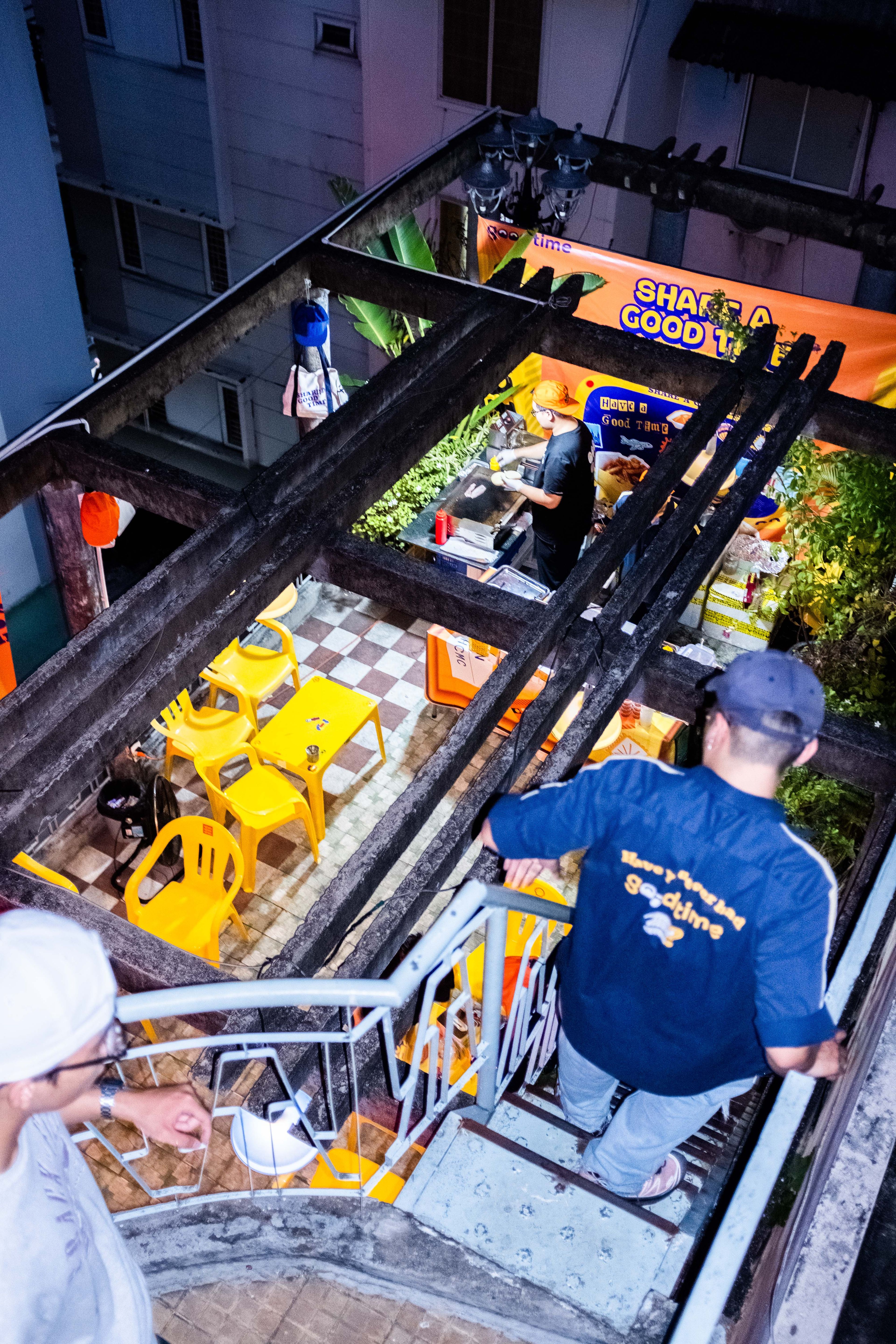
Tung describes the two years following Covid as somewhat slow and boring. Customers who came to Neo- usually did so because they knew Tung, but it was difficult to attract locals consistently and get them to understand what Neo- was all about. Part of this had to do with the cost of drinks, an issue that started with Deme Brewing and their lack of understanding their demographic. The reality was, locals could pay for a case of Tiger with the amount they’d spend on a pint of one of Neo-’s craft beers. Despite these humps, Tung pushed through. They were hosting events from the get-go, and even though there were a few times no one showed up, it never deterred Tung from thinking of ideas for the next one. Gradually, the work paid off. For one, rather than locals, expats made up a bulk of Neo-’s customers in the beginning. Tucked away near a tourist area, they loved the ‘hidden-gem’ feel of the place, which many mentioned in their Google reviews. As the space continued to get developed—eventually they rented out the whole building, moving the cafe from the first floor to the second—more customers flooded in. It’s only recently (six months as of speaking to Tung in June), that he believes people have really started to clock into the Neo- experience. The three years so far is just the start in Tung’s eyes, and moving forward, he wants to continue building Neo- into something that’s more globally-minded, all the while staying anchored in Vietnam. And who knows, there’s even talk of opening up a similar space in Da Nang. Tung and his wife love the city, and now that they’re raising a daughter spending time away from the madness of Saigon doesn’t sound like that bad of an idea. No matter what happens, if there’s one thing I’m sure of it’s that throughout it all, the good times, the bad, the rainy days and those when the sky at sunset turns pink, purple, a colour you don’t even know how to describe, Tung will be wearing a smile. Perhaps that’s all Neo- is, in the end. A place people go to smile.
- Follow Neo-
- Follow LATer
- Follow Deme Brewing
